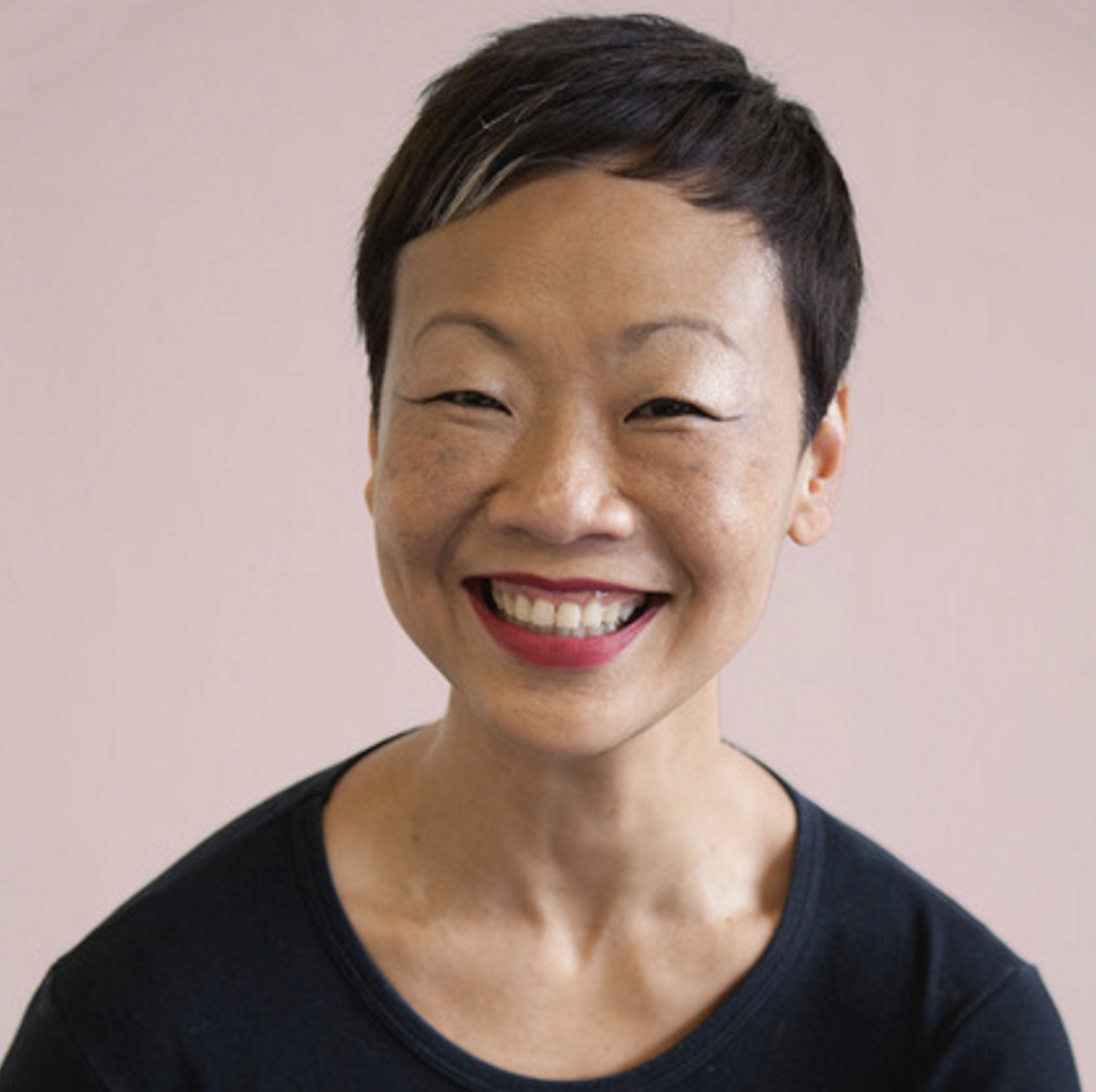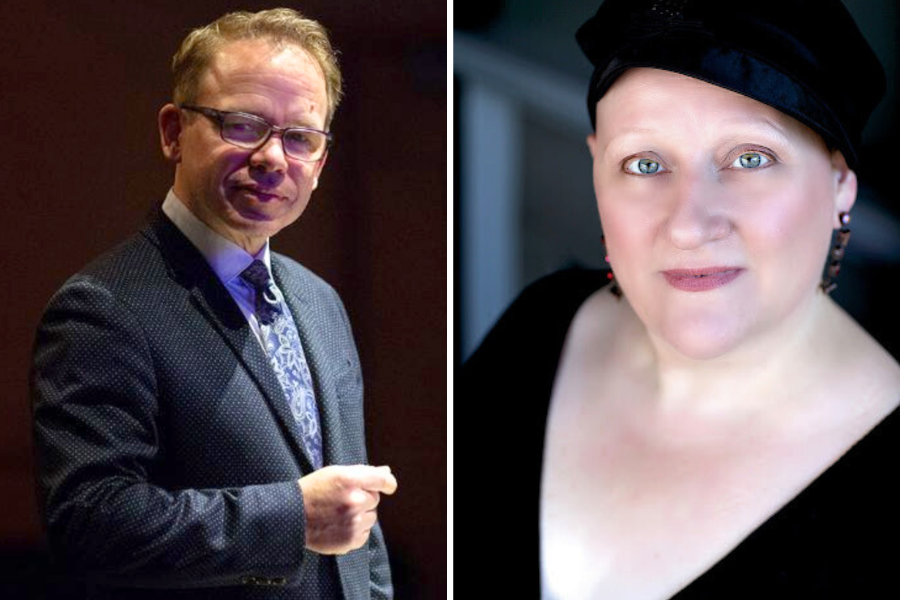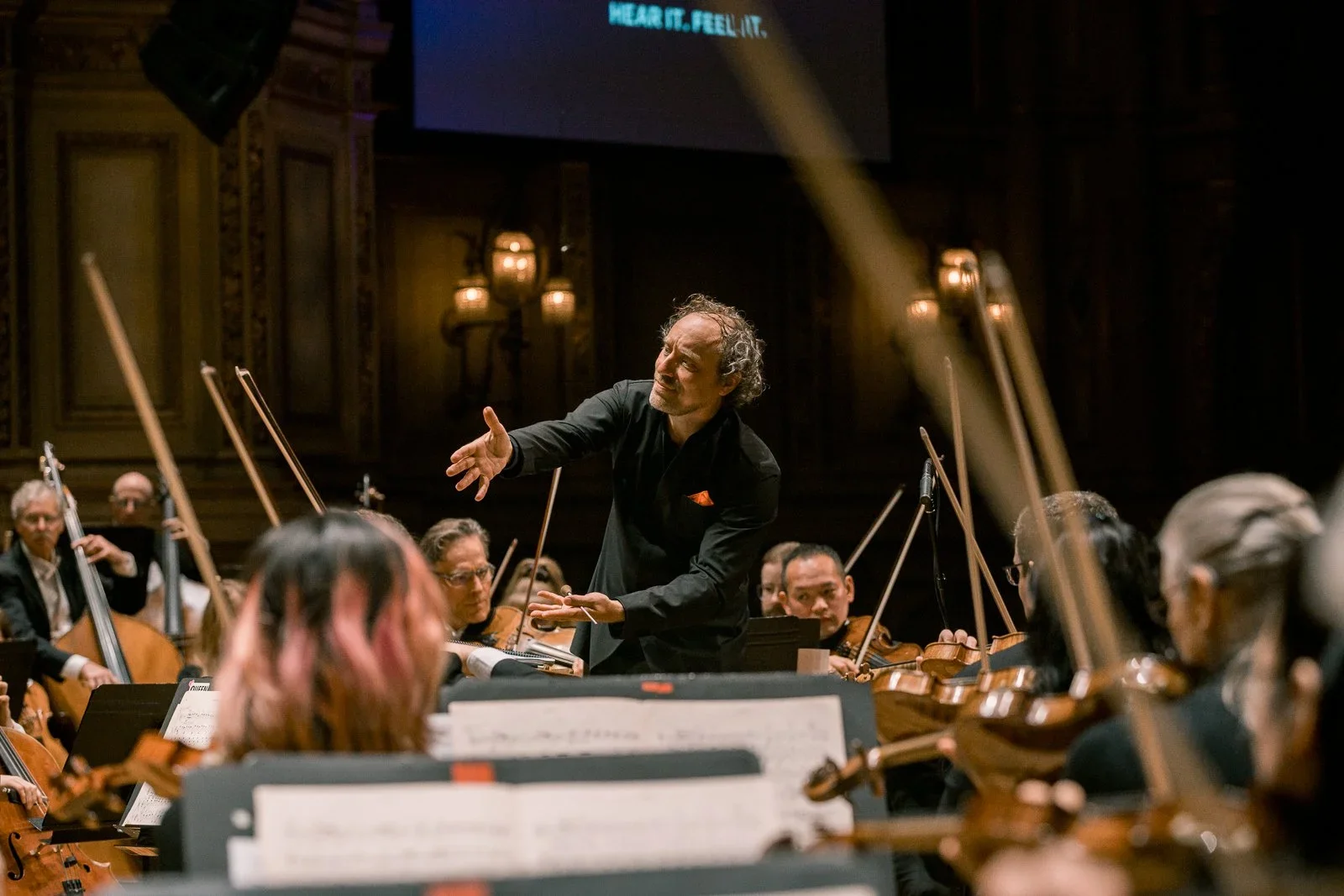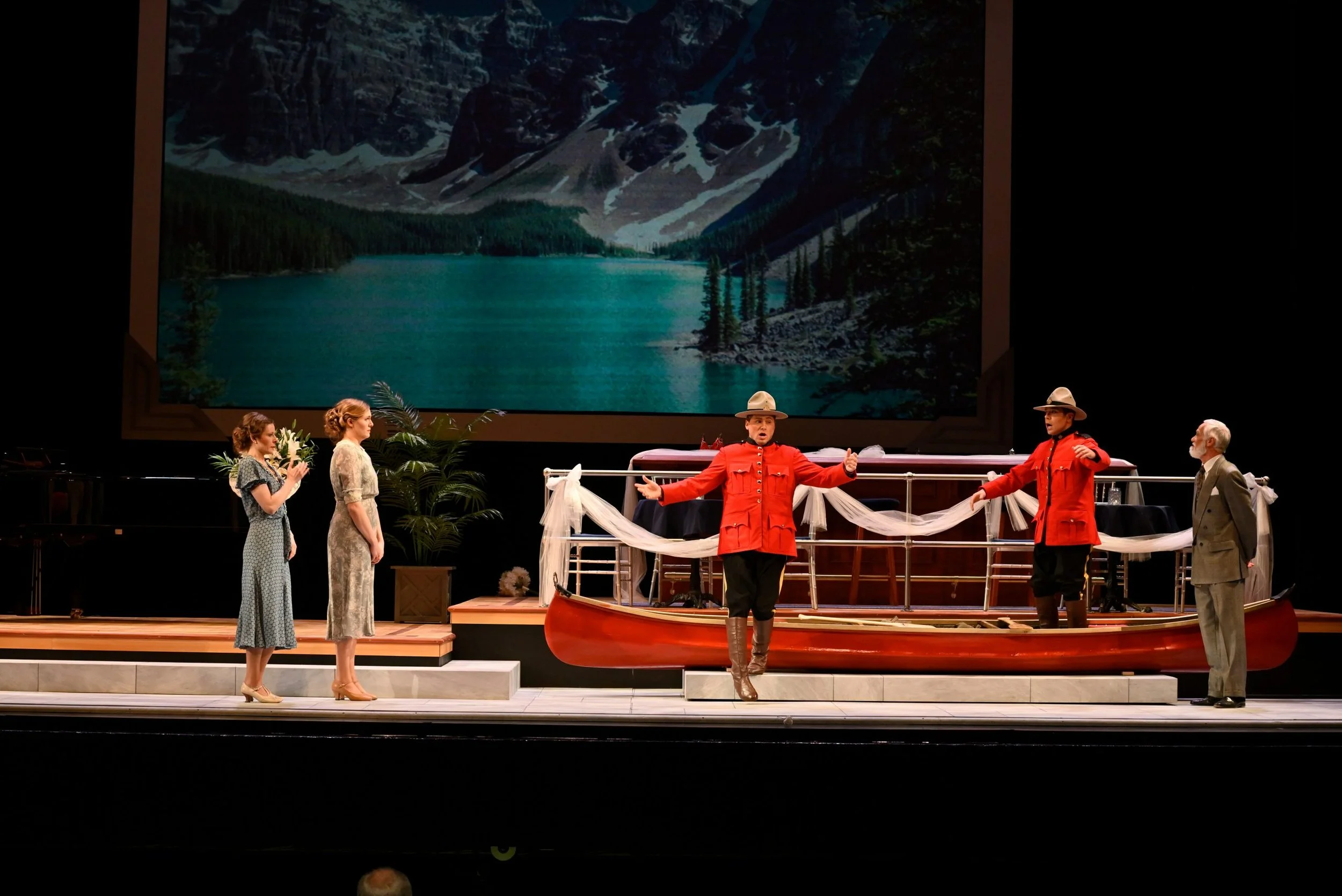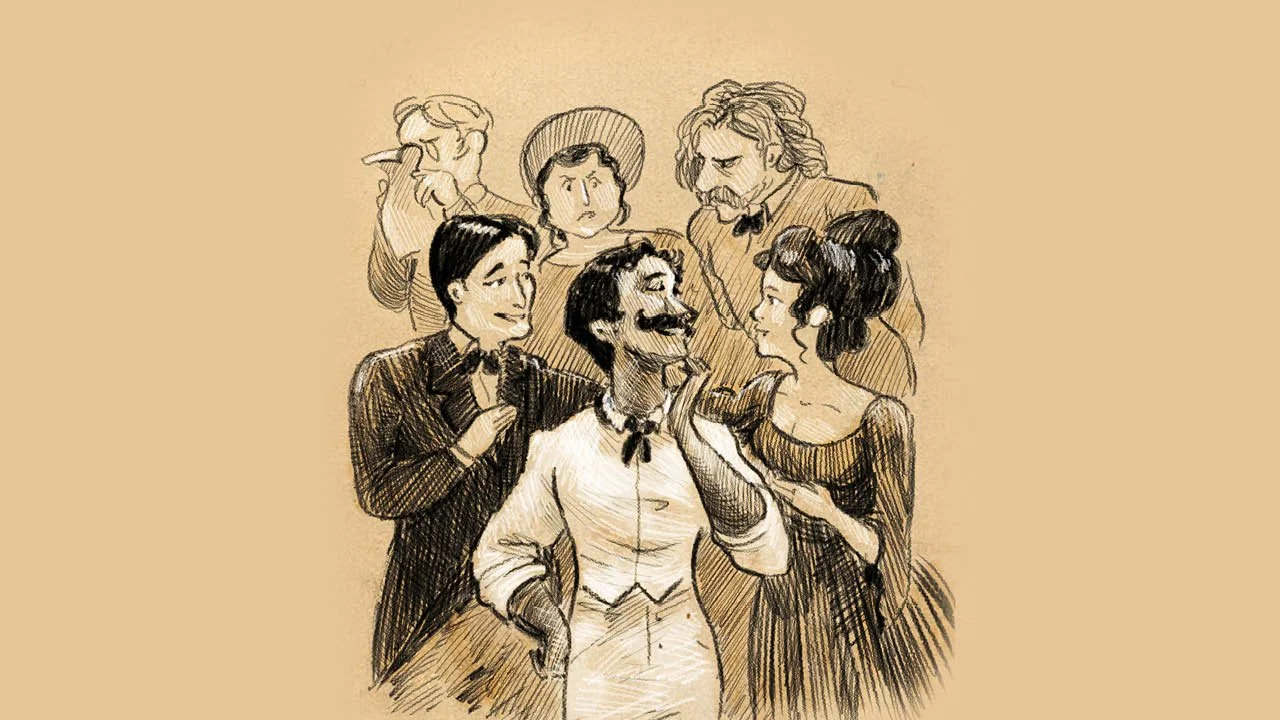Singapore-Vancouver conductor Jennifer Tham directs concert of overseas-Chinese music in Bright Moon
The Vancouver Chamber Choir performance features pieces by living composers from Hong Kong, Taiwan, and beyond
Jennifer Tham.
Vancouver Chamber Choir presents Bright Moon on June 3 at 7:30 pm at Fraserview Church (11295 Mellis Drive, Richmond)
THE MOON HOLDS special significance in Chinese culture, a symbol of family, reunion, peace, and prosperity. For people of the Chinese diaspora, it reminds them of home. Singapore-Vancouver conductor Jennifer Tham looked skyward for inspiration in her role as guest director for Vancouver Chamber Choir’s upcoming season finale, Bright Moon, a capsule collection of music of the overseas Chinese.
The concert takes its name from a poem by Xin Qiji (1140 to 1207) that appears in Chinese-American composer Chen Yi’s meditation on loneliness and longing, Three Poems from the Song Dynasty, a “triptych of moon-scapes”. Here, the moon connects the poet to his brother, whom he has not seen in five years.
“The whole concert is about place,” says Tham, artistic director and conductor of SYC Ensemble Singers, Singapore’s premier chamber choir with a focus on contemporary choral music and the music of living composers. “What is the idea of place and home? I think we carry places with us everywhere we go— home and land and family—and the one thing that unites us is always the moon.
“Everywhere around the world we see the moon,” adds Tham, connecting with Stir via Zoom. “You can talk to the moon—that’s big in Chinese culture. I’m always trying to look for something that brings hope.”
Tham, who has been singing for as long as she can remember and who met her husband in a choir in Singapore, earned her MFA in interdisciplinary studies at SFU and is now furthering her studies in Vancouver. She has conducted and presented lectures and workshops in France, Hungary, Japan, Taiwan, Australia, Indonesia, Poland, Croatia, the USA, and beyond. Tham represents Singapore on the World Choir Council, having served on the jury at the World Choir Games since 2004. The President of the Republic of Singapore awarded Tham the Cultural Medallion, the nation’s highest arts accolade, for her role in shaping Singapore’s cultural landscape.
Bright Moon features the Vancouver Chinese Choir Association (温哥華國韻合唱團), under the direction of conductor Ling Lu, as special guests. The program is made up of compositions that reflect the vast diversity of the overseas Chinese. “There’s not too much folksy stuff,” Tham says. “I don't think that’s very representative of Chinese peoples. We really wanted to show that we all were from different lands.”
Tainan-based Filipino composer Edgar Macapili, for instance, revives the Indigenous language of the Siraya people of Taiwan’s Tainan plains in The Mountains Sing. In translating biblical texts, he wrote the piece in the motifs of traditional Siraya songs to give the language—dormant for 200 years—back to the tribe.
Hong Kong composer Steve Ho wrote Moonlight Lullaby while a doctoral candidate at the University of British Columbia. The song is a quodlibet of Cantonese folk lullaby about the moon and the iconic “Blue Moon”. As he once put it: “The arrangement was born out of my homesickness for HK while studying in Canada—hence the same moon watched from both sides (East and West).”
“He puts it all together with a slightly pop-jazz influence,” Tham says. “It’s a really nice folk lullaby, something we’ve all heard when we were younger, something that is comforting, together with something familiar in the west.”
Singapore composer Zechariah Goh wrote The Happiness of Fish for the SYC Ensemble Singers, and Tham describes it as one of the most moving if difficult of the works he created for them because of its minimalistic use of sound. Zechariah sets a well-known discourse on the subjectivity of happiness between Taoist philosopher Zhuangzi and the logician Huizi. “It is so beautiful,” says Tham of the piece. “For me, I think it’s quite hard to perform well; it’s very still. It’s about being happy in the still moments, in the present….We just performed it again in Singapore, our first concert without masks in front of a live audience coming out of the pandemic. It’s just about being happy. It’s one of my favourite pieces.”
Tham is also especially excited about Austin Yip’s Cik Cuk Ding Ding, inspired by the Ding Ding trams that run from east to west along Victoria Harbour on Hong Kong Island. The route passes fashion malls, tourist attractions, and temples. “He’s created a soundscape of sights and sounds along the tram line,” Tham says. “‘Cik cuk is the sound of people walking. And ding, ding! is the sound of the tram bells.”
Taiwanese composer Nan-Chang Chien has won five Golden Melody Awards, the most prestigious annual musical award in Taiwan. The playful I Am Flying, which is on the program, is one of his most beloved works.
Rounding out and opening the concert is Vancouver composer Jocelyn Morlock’s One Black Spike. It honours the thousands of Chinese men who left their families to come to Canada in the 1880s to work on railroad, mostly concentrated within the 250-mile section in B.C.
Kari Turunen, artistic director of Vancouver Chamber Choir, says Bright Moon is an opportunity to celebrate the rich Chinese history and cultural heritage in Vancouver. The ensemble prides itself in performing in numerous languages. “We want to be open to choral influences from all over the globe,” Turunen says. “These kinds of crossings of cultural boundaries will continue in the future as well. The world is wide and its musics rich and varied.”
Reflecting on Bright Moon, Tham is reminded of composer Chen Yi’s view that music is a bridge to connect people from different cultures. It’s this potential for human connection that drew Tham to music in the first place.
“Life is multitextured and multilayered, and there’s always a whole lot of stuff coming at you—it’s like a choir that way,” she says. “It’s a real polyphony. Music opens up spaces for the impatient to imagine different worlds, different possibilities. It allows us to experience somebody else’s life and their life experience, how they deal with things like grief and anger, war and peace, and loss and joy.
“In the end, the human experience is really the same the world over,” she says. “Music allows us to know another experience and to feel another experience. Even if it’s in a different language, you come away transformed, then you have a little bit of them in you and you in them. Isn't that beautiful? Through music, people can come together.”


